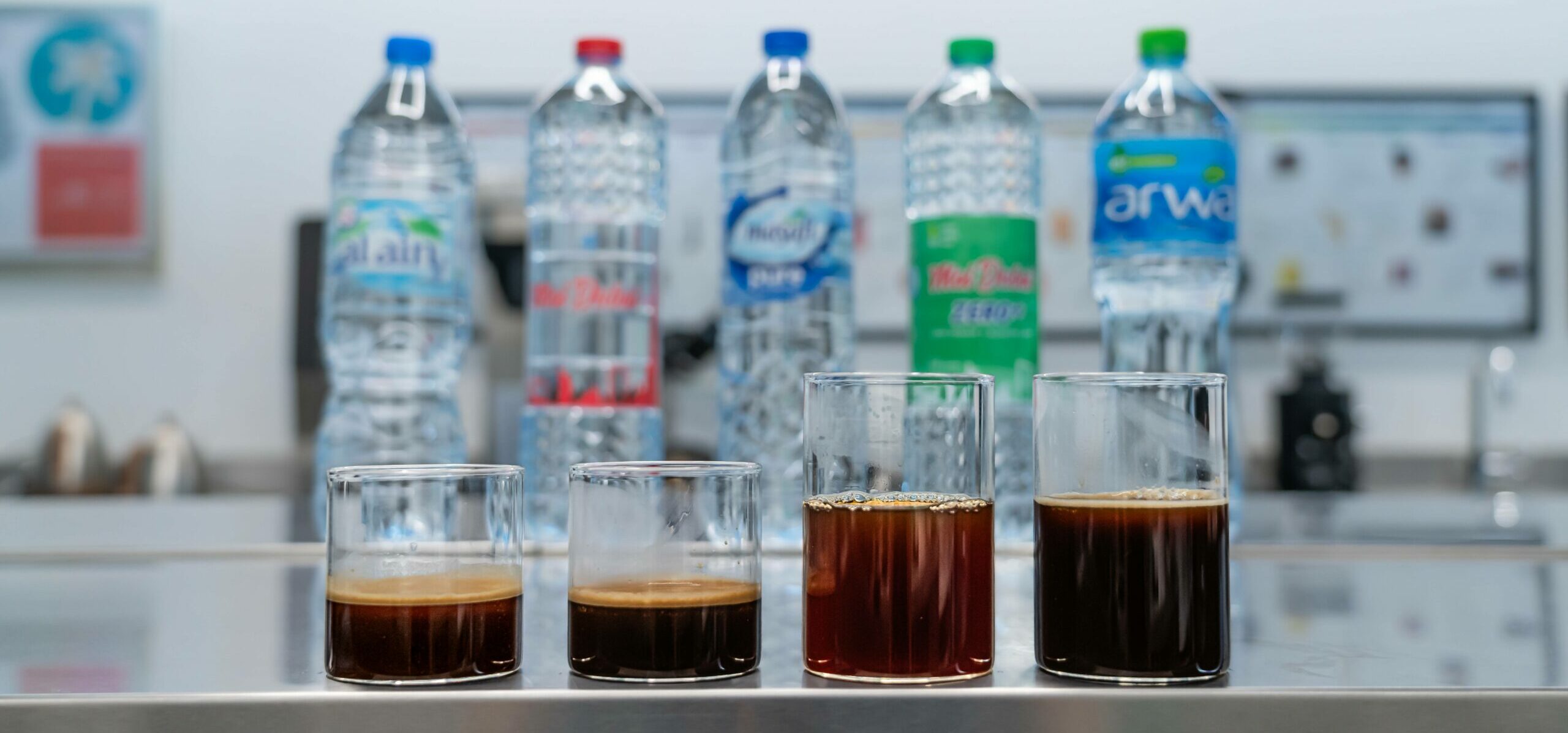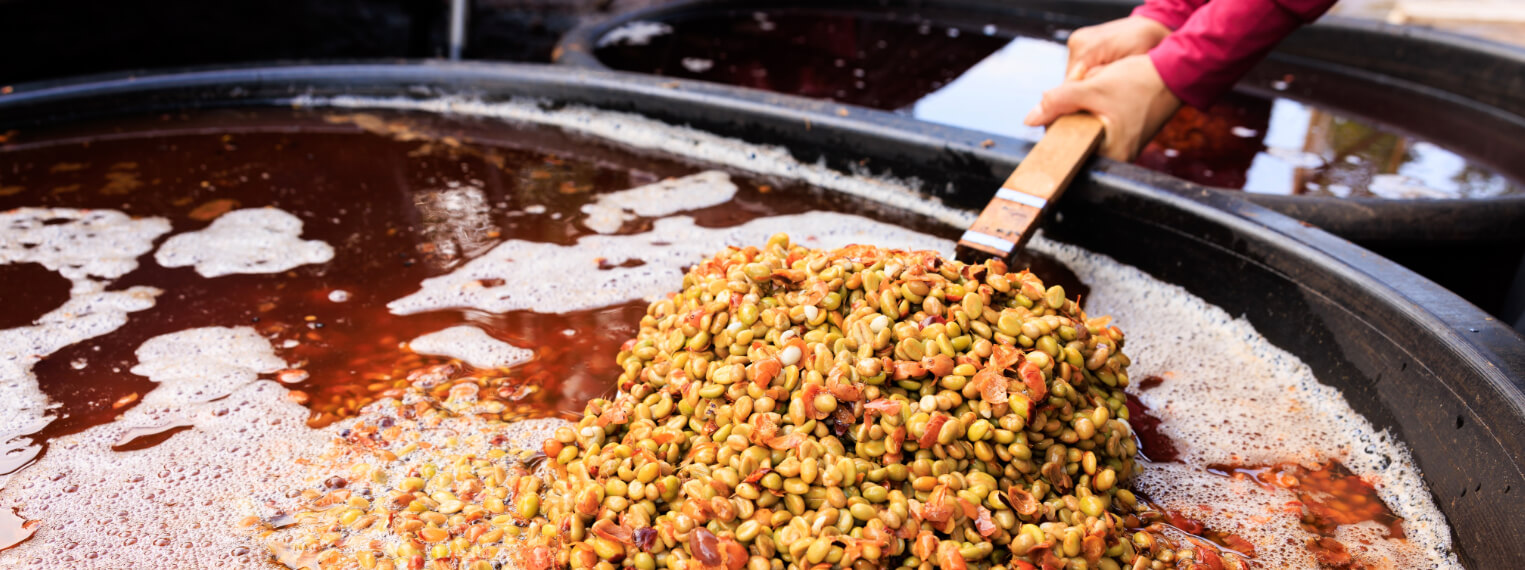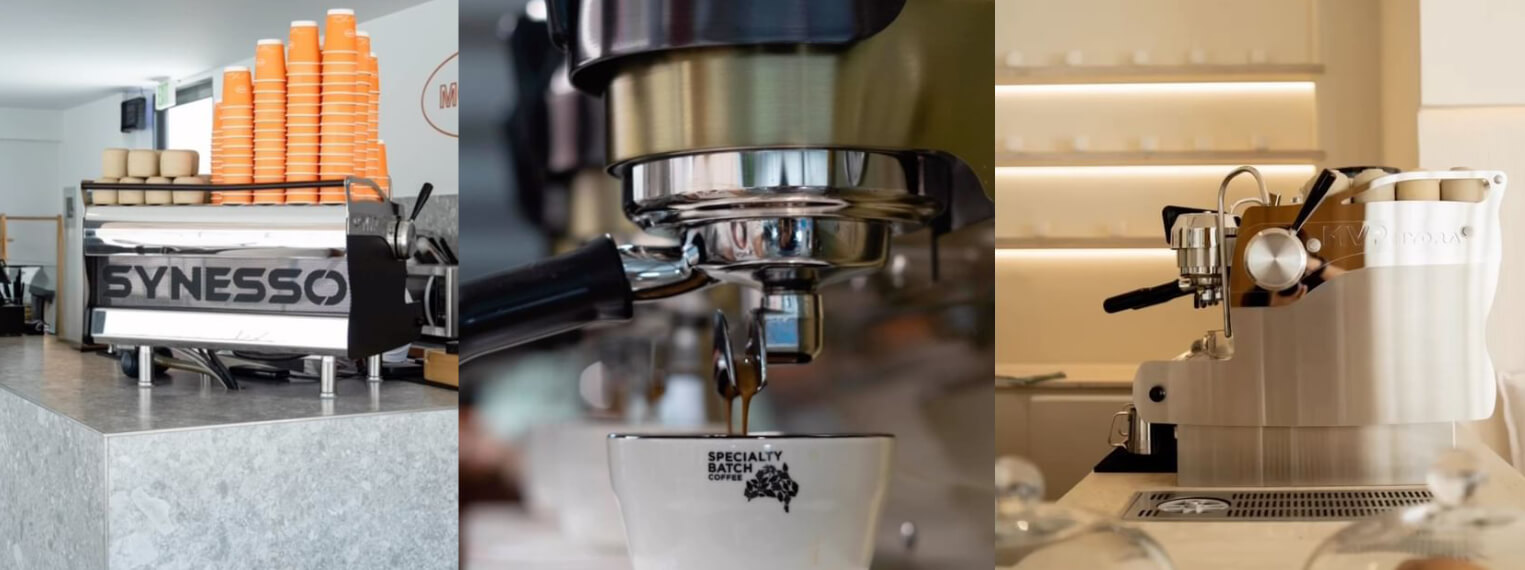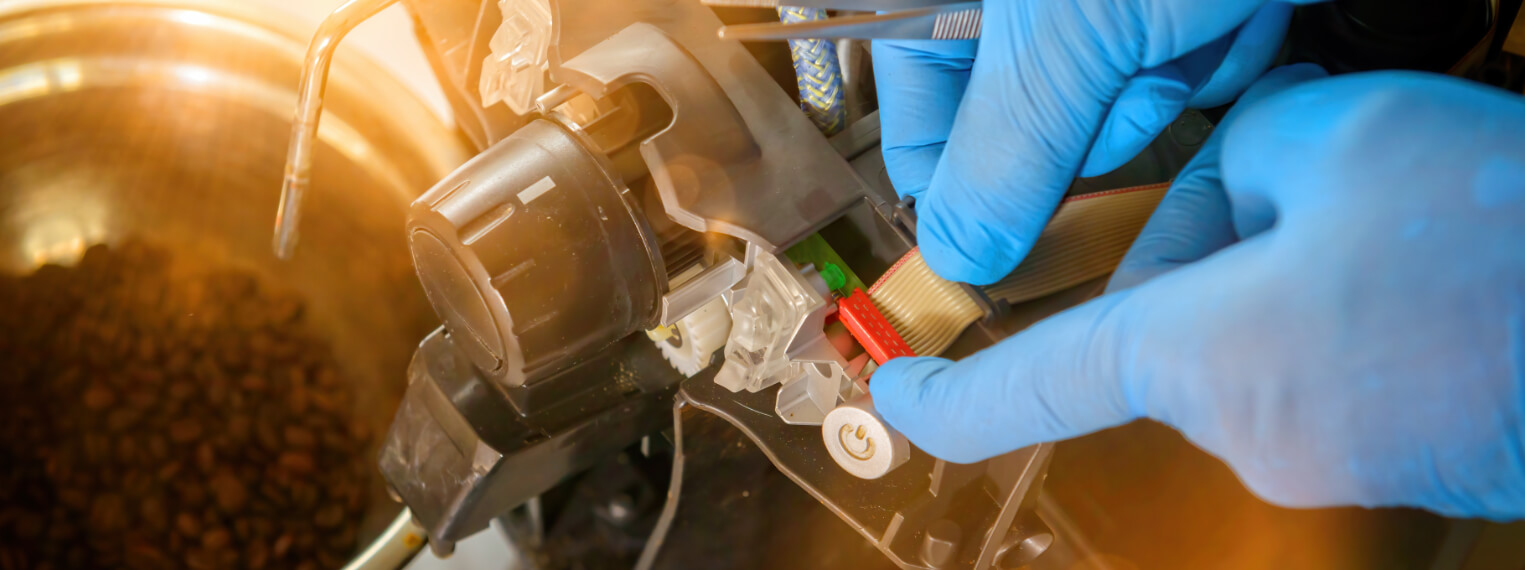How Does Local Bottled Water Affect Your Coffee Experience?
Attention all coffee enthusiasts across the UAE! If you’ve ever wondered why your home brewed coffee tastes remarkably different compared to your favourite coffee shop, even if you’re using the same beans, the answer might just lie in the water you use. When it comes to brewing coffee, water is not just a damn good solvent; it’s a crucial ingredient that can significantly alter the entire coffee experience. This article/study delves into the impact of bottled water brands’ mineral contents on coffee brewing, both manually as a filter brew and through espresso machines, serving as a comprehensive guide for UAE residents keen on elevating their coffee game.
DISCLAIMER: This article covers a preliminary study that was undertaken based solely on the mineral compositions as declared on the manufacturers' labels. Our findings presented here are derived from the data that was readily accessible. To further this research, we shall shortly be releasing our data (via a link at the end of this article page) pertaining to two crucial components not listed on the labels - Alkalinity, a measure of water's capacity to neutralise acids, and Calcium Carbonate (CaCO3), or Temporary Hardness, which influences the brewing process, extraction efficiency and equipment upkeep. Our data and analysis correlates to measurement results obtained using a titration method. It’s therefore vital to acknowledge that these two elements are pivotal in assessing the real impact of any given water on coffee brewing. This article has not received any sponsorship and aims solely to offer insights to the public in the UAE.
Water Brands Under the Microscope
We evaluated six prominent bottled water brands available in the UAE, analysing their mineral content to understand how each one influences coffee brewing. Keep this page bookmarked, as we plan to expand our research to encompass an even broader selection of water brands.
For this initial study, we focused on accessible brands that many of you can easily find at your local supermarket. The mineral composition of these waters plays a crucial role in determining the acidity, body (mouthfeel), sweetness, bitterness, and overall flavour profile of your coffee.
| Brand Name | pH | TDS | Hardness | Calcium | Magnesium | Sodium | Potassium | Nitrate | Chloride | Bicarbonate | Fluoride | Sulfate |
| Mai Dubai | 7.2 | 127 | 91 | 20 | 10 | 3.5 | 5 | 0.2 | 50 | 18.5 | 0 | 20 |
| Masafi Pure | 7.1 | 115-135 | 92 | 3.3 | 18 | 6 | <1 | <1 | 62 | 8 | <0.045 | 18 |
| Al Ain | 7.3 | 110 | 75 | 8 | 13 | 8 | 2 | <0.3 | 45 | 30 | <0.1 | 18 |
| Arwa | 7 | 115 | <100 | 1 | 20.7 | 1.4 | 9 | <1 | <1 | 12 | <0.1 | 77.4 |
| Nestle | 7.2 | 120 | 85 | 24 | 4.6 | <5 | n/a | <0.1 | 43 | 10 | <0.1 | 24 |
| Mai Dubai zero+ | 8.2 | 235 | 75 | 16.5 | 7.8 | <1 | 75 | <1 | 32 | 125 | <1 | 34 |
The Relative Role of TDS
Total Dissolved Solids (TDS) is a measure both organic and inorganic substances dissolved in water. Its aim is to provide an ‘overall’ indication of water’s mineral content. While a higher TDS level suggests a richer mineral presence which aides in potentially enhancing a coffee’s flavour complexity, it is the specific mineral composition rather than TDS alone that critically determines the coffee’s sensory attributes.
Essential Elements within the TDS
- pH Level: Ideal brewing water should have a neutral pH of around 7. A slightly lower pH can enhance the perceived acidity in coffee, while a higher pH can flatten the acidity.
- Alkalinity: Alkalinity acts as a buffer against acidity, influencing the coffee’s perceived acidity. Water with low alkalinity can produce a more acidic cup, while high alkalinity can mute the acidity. Notably, optimal alkalinity for coffee brewing is considered to be around 40-70 ppm as CaCO3.
- Magnesium and Calcium: These minerals primarily contribute to water total hardness*. Magnesium is known for enhancing a coffee’s flavour clarity; particularly accentuating acidity and sweetness. Calcium tends to emphasise body and/or tactile attributes of coffee. However, the balance between these minerals is pivotal in optimising flavour extraction.
* The part of total hardness chemically equivalent to total alkalinity is termed as “Carbonates hardness”, which is also referred to as ‘temporary’ hardness, as the carbonates are removed from water (scale formation) on boiling. Non-carbonate hardness is called ‘permanent’ hardness as it cannot be removed by boiling.
- Bicarbonates (HCO3-): Serve as a buffer, moderating the coffee’s natural acidity. While excessive bicarbonate levels can dull coffee’s vibrant acidity, resulting in a flatter taste, an optimal concentration is essential to maintain a harmonious acidity level without masking the coffee’s intrinsic flavours. Levels above 100 ppm or mg/L are considered high.
- Sodium and Chlorides: In minor quantities, sodium and chlorides have a negligible direct impact on coffee’s flavour. However, elevated levels of these minerals, notably Chlorides, can introduce undesirable taste notes, underlining the necessity for their moderation in brewing water.
Considerations
While TDS provides a general indication of water’s potential to influence coffee flavour, the distinct effects on coffee’s acidity, body, and overall sensory balance are intricately linked to the specific concentrations of individual minerals within the TDS metric. Achieving an ideal mineral balance is crucial for optimal flavour extraction.
Theoretical Analysis of Bottled Water Brands for Coffee
1. Mai Dubai Zero+
- pH: 8.2, significantly alkaline, likely to reduce perceived acidity.
- Hardness: 75 ppm, moderate hardness conducive to balanced extraction.
- Calcium: 16.5 ppm and Magnesium: 7.8 ppm, lower magnesium could diminish focus on acidity and sweetness.
- Bicarbonate: 125 ppm, elevated levels might overly buffer acids, diminishing perceived acidity.
Impact: May result in coffee with muted acidity, moderate body, and balanced sweetness, potentially muting distinct flavours due to higher pH and bicarbonate content.
2. Mai Dubai
- pH: 7.2, closer to neutral, beneficial for preserving acidity.
- Hardness: 91 ppm, supports a solid extraction rate.
- Calcium: 20 ppm and Magnesium: 10.0 ppm, favourable for enhancing body and sweetness.
- Bicarbonate: 18.5 ppm, lower, beneficial in preserving the flavour profile.
Impact: Expected to yield coffee with pronounced acidity, improved body, and balanced sweetness.
3. Masafi Pure
- pH: 7.1, slightly acidic, ideal for highlighting coffee’s inherent acidity.
- Hardness: 92 ppm, favourable for extraction.
- Calcium: 3.3 ppm and Magnesium: 18.0 ppm, higher magnesium likely to boost acidity and sweetness.
- Bicarbonate: 8.0 ppm, very low, may aid in retaining a coffee’s natural acidity.
Impact: Expected to highlight acidity and sweetness while showcasing a lighter, clean body.
4. Al Ain
- pH: 7.3, close to neutral, versatile for various coffee types.
- Hardness: 75 ppm, moderate, supporting extraction.
- Calcium: 8 ppm and Magnesium: 13.0 ppm, balanced for supporting body and flavour.
- Bicarbonate: 30.0 ppm, moderate, preserving acidity without overpowering.
Impact: Predicted to produce a well-balanced cup with notable acidity, body, and sweetness.
5. Arwa
- pH: 7.0, neutral, optimal for coffee brewing.
- Hardness: <100 ppm, vague, yet we would consider it to be slightly on the higher side.
- Calcium: 1 ppm and Magnesium: 20.7 ppm, high magnesium great for flavour extraction.
- Bicarbonate: 12.0 ppm, low, favourable for acidity preservation.
Impact: Potentially enhancing coffee’s acidity and sweetness.
6. Nestle
- pH: 7.2, near neutral, supportive of balanced extraction.
- Hardness: 85 ppm, moderate, indicating favourable extraction conditions.
- Calcium: 24 ppm and Magnesium: 4.6 ppm, possibly prioritising body over acidity.
- Bicarbonate: 10.0 ppm, relatively low, beneficial for clarity.
Impact: May offer a balanced profile with a potential emphasis on body due to higher calcium.
Refined Recommendations for Manual Brewing
Given the detailed analysis of water mineral content and its effects:
- For Enhancing Acidity and Sweetness: Water with higher levels of magnesium and lower bicarbonates is ideal. Masafi Pure, with its higher magnesium content and relatively low bicarbonate levels, stands out for its potential to bring out the coffee’s inherent acidity and sweetness, making it suitable for brewing light roast coffees that have pronounced acidic notes.
- For a Balanced Cup with Rich Body: A moderate level of calcium and magnesium, along with controlled bicarbonate levels, would contribute to a well-rounded coffee experience. Al Ain and Mai Dubai offers a balanced mineral profiles that supports a wide range of flavours without compromising the coffee’s natural acidity or sweetness. This makes them versatile option for brewing most medium to darker roasted coffees.
- For Highlighting Delicate Flavours: Arwa, with its neutral pH and ideal magnesium to bicarbonate ratio, can highlight any delicate flavour notes without overshadowing them with excessive bitterness or flatness. It’s particularly suitable for specialty coffees with complex and nuanced tasting notes.
Recommendations for Espresso Extraction and Equipment Upkeep
When it comes to espresso extraction, selecting a water brand that strikes a perfect balance between enhancing the coffee’s inherent flavours and preserving the longevity of the espresso machine is paramount. If accurately represented, Mai Dubai, with its balanced mineral content, emerges as a standout choice. It offers the ideal middle ground for both flavour extraction and equipment safety, reducing the risk of excessive scale buildup while ensuring a balanced espresso shot.
However, the right water choice is just one piece of the puzzle in ensuring the optimal performance and durability of your espresso equipment. Regular maintenance and periodic major service are critical to the longevity and efficiency of espresso machines. Over time, even with the best water, mineral deposits can accumulate in the machine’s inner workings, affecting water flow, temperature stability, and overall machine health.
Considerations
Alongside selecting water with suitable mineral content for both espresso quality and machine health, implementing a consistent maintenance routine is essential. Regularly descaling the machine, cleaning filters, group heads, and replacing any worn components, such as gaskets and screens, are fundamental practices. Additionally, an annual inspection and servicing by a certified technician will ensure your espresso machine remains in peak condition, preemptively addressing wear and potential problems, thereby safeguarding against unexpected failures and preserving your investment in quality espresso preparation.
PRACTICAL: Sensory Evaluations
While the mineral content of water significantly affects coffee brewing, the nuanced interactions between minerals and coffee compounds are complex. Therefore, to dive a bit deeper and to (hopefully) get a clearer picture of how each brand of water affects coffee brewed in different settings, we conducted sensory evaluations of two coffee brewed with water from the discussed brands at Specialty Batch Coffee Lab. For filter brewing, we utilised a light-roasted Kenyan Washed Peaberry, while a medium-roasted El Salvador Natural was chosen for espresso brewing.
Our scoring mechanism assessed how the different water brands affected sensory characteristics through filter and espresso brewing. Sensory attributes were rated on a scale from 0, indicating absence, to 9, denoting intense manifestation.
The Process
A controlled brewing setup was critical for both filter and espresso tests. The filter study involved an immersion method (french press) with consistent variables such as the coffee-to-water ratio, grind size, brewing temperature, and brewing time uniformly applied across tests with different water brands. The espresso study would similarly standardise parameters, including coffee dose, yield, brewing temperature, and extraction timing.
Furthermore, the setup involved the comparative scoring of the two brewing methods side by side. This comparative approach doesn’t pit filter against espresso directly but rather assesses how each type of water affects the sensory qualities within each brewing method independently. By maintaining the same evaluation criteria across both brewing methods, the experiment allows for a nuanced understanding of water’s role in coffee brewing. It provides a view of optimal water compositions that cater to the distinct extraction dynamics and flavour profiles characteristic of filter and espresso brews.
Filter brew
using a Kenyan, Washed Process, Peaberry SL-34, Riuru 11 (9 days after roasting)
| Water Brand | Acidity | Body (Mouthfeel) | Flavours | Sweetness | Bitterness | Balance |
|---|---|---|---|---|---|---|
| Mai Dubai Zero+ | 3 | 5 | 4 | 4 | 5 | 4 |
| Mai Dubai | 4 | 6 | 5 | 5 | 4 | 5 |
| Masafi Pure | 6 | 4 | 6 | 6 | 3 | 6 |
| Al Ain | 5 | 5 | 5 | 5 | 3 | 5 |
| Arwa | 7 | 4 | 7 | 7 | 2 | 7 |
| Nestle | 2 | 6 | 3 | 3 | 6 | 3 |
Espresso
using a El Salvadoran, Natural Process, Red Bourbon (21 days after roasting)
| Water Brand | Acidity | Body (Mouthfeel) | Flavours | Sweetness | Bitterness | Balance |
|---|---|---|---|---|---|---|
| Mai Dubai Zero+ | 2 | 6 | 3 | 3 | 6 | 3 |
| Mai Dubai | 3 | 7 | 4 | 4 | 5 | 4 |
| Masafi Pure | 5 | 6 | 6 | 6 | 4 | 5 |
| Al Ain | 4 | 7 | 5 | 5 | 4 | 5 |
| Arwa | 6 | 6 | 7 | 7 | 3 | 6 |
| Nestle | 1 | 6 | 2 | 2 | 7 | 2 |
Disclaimer: The results depicted in the tables above are average scores by three peer-calibrated cuppers and are intended to illustrate the impact of water mineral content on coffee brewing. It's important to note that coffee taste can be highly subjective and influenced by numerous variables including the coffee's origin, processing method, pre & post-roasting age, grind efficacy among others. Thus, while the tables provide valuable insights, they should not be viewed as conclusive evidence of the effects of different bottled waters on coffee flavour but rather as a guide to understanding potential impacts.
Critical Considerations:
- High Alkalinity’s Impact: Mai Dubai Zero+’s significantly high alkalinity and pH might overly neutralise the coffee’s natural acidity, potentially yielding a flatter and less vibrant cup, notably when using the filter method. This underscores the pronounced influence of high alkalinity on coffee’s flavour profile.
- Nestle’s Performance: Given its mineral composition, Nestle water might not be the quintessential choice for either brewing method when the objective is to accentuate acidity or delicate flavours. Its higher calcium content, relative to magnesium, suggests it could endow a fuller body but risk obscuring some flavour subtleties, particularly in espresso where water’s interaction with coffee compounds is more pronounced.
- Masafi Pure and Arwa’s Merits: These waters still stand out for their ability to enhance acidity and sweetness, critical for brewing light roast coffees with pronounced acidic notes. However, it’s worth noting that such water might not suit all coffee types or personal preferences, especially for those who favour a more balanced or full-bodied cup.
- General Versatility of Al Ain and Mai Dubai: While these waters offer a balanced mineral profile conducive to a wide range of flavours, it’s essential to acknowledge that “one size fits all” might not apply to all coffees. The optimal choice depends on various factors, including the specific coffee’s roast profile and inherent flavour characteristics.
Final Words
The water you use for brewing coffee profoundly affects the final cup’s taste and quality. By choosing the right bottled water based on its mineral composition, coffee lovers in the UAE can enhance their brewing technique, leading to a more enjoyable and flavourful coffee experience. It’s important to note that the optimal levels of these minerals can vary depending on personal taste preferences, the specific coffee beans used, brewing method and equipment quality. Water chemistry is just one of many variables that can be adjusted to fine-tune the coffee brewing process for the best possible flavour.
Whether you’re dialling in your espresso machine or perfecting your pour-over technique, mindful consideration of the water used is an essential step towards coffee excellence.
If you have any questions, suggestion, requests, or would like to discover more about the Specialty Batch Coffee experience, drop us a comment below.






